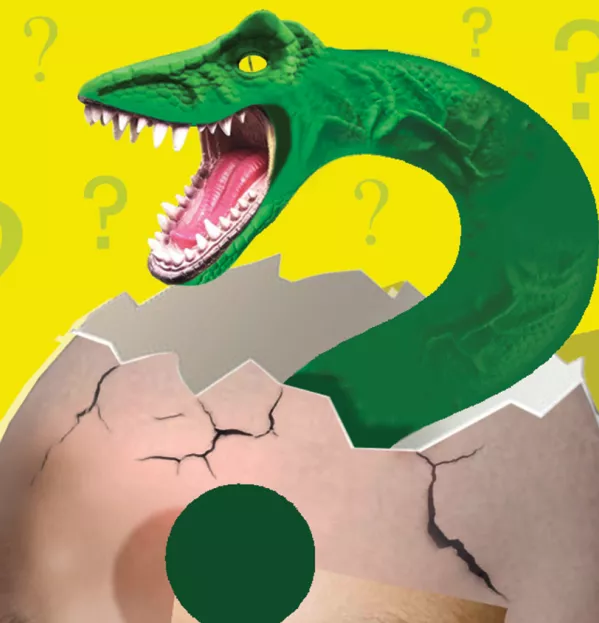Have any astronauts seen the dark side of the moon? Are older rocks more valuable than younger ones? If God forgives all, why did he expel Satan from heaven?
I looked at our classroom “Any questions?” board with approval. They were great questions, but I was disappointed to realise how many we had yet to answer.
Time was clearly a problem here. I do wonder if the rise of the question board is linked to the tightening of the curriculum. Has our teaching become so prescribed that we no longer have the leeway to go off on a tangent?
I once worked for a head who told me every class teacher could be put into two categories: the dinosaur eggs and the other ones. His theory was that if a child produced a dinosaur egg mid-lesson, some teachers would ditch the plan and set out on an unchartered activity that would lead who knows where, while a non-dinosaur-egg teacher would carry on with the planned lesson.
More often than not, letting children lead the learning gets you nowhere, but it’s important to keep your ears attuned for those moments when their thinking strikes gold. It isn’t always easy, especially in a busy classroom. But sometimes it’s useful to ask questions and not have a preconceived notion of what the right answer should be.
I saw a great example of this in an online post about phonics from a teacher who had asked her class to spell words that all had the “ur” digraph in. One of the clues was “female hospital worker” to which the child had written “surgeon”, which shows that children are capable of offering much better answers than the ones in the adult’s head.
500 questions a day
Early years teachers are great at questioning. Their children are pretty good at it, too. I read recently that the average four-year-old asks about 500 questions a day. By upper key stage 2, this has tapered off considerably. Clearly this is partly because older children have absorbed more information (and also don’t want to appear stupid), but it might have something to do with the shortage of time for questions in among all the Spag cramming and maths revision.
Even a few years down the line, the natural curiosity can slide. A teaching friend of mine, who is an early years specialist, moved to Year 2 this year and is tearing his hair out at the children’s lack of independence. “In early years, they think for themselves and find things out,” he told me. “Now they just wait to be spoon-fed.”
They’re probably just realising that answers can be right or wrong: if your semi-colon is too high, you’re wrong; if a question says “crisps contain a lot of…” and you write “salt” instead of “fat”, you’re wrong.
The same is true of government teacher consultations that ask what we think, yet always seem to come up with the answers that ministers wanted in the first place. Sometimes we’d all benefit from asking a question without having a clue what the correct answer should be.
Jo Brighouse is a pseudonym for a primary teacher in the Midlands. She tweets @jo_brighouse
